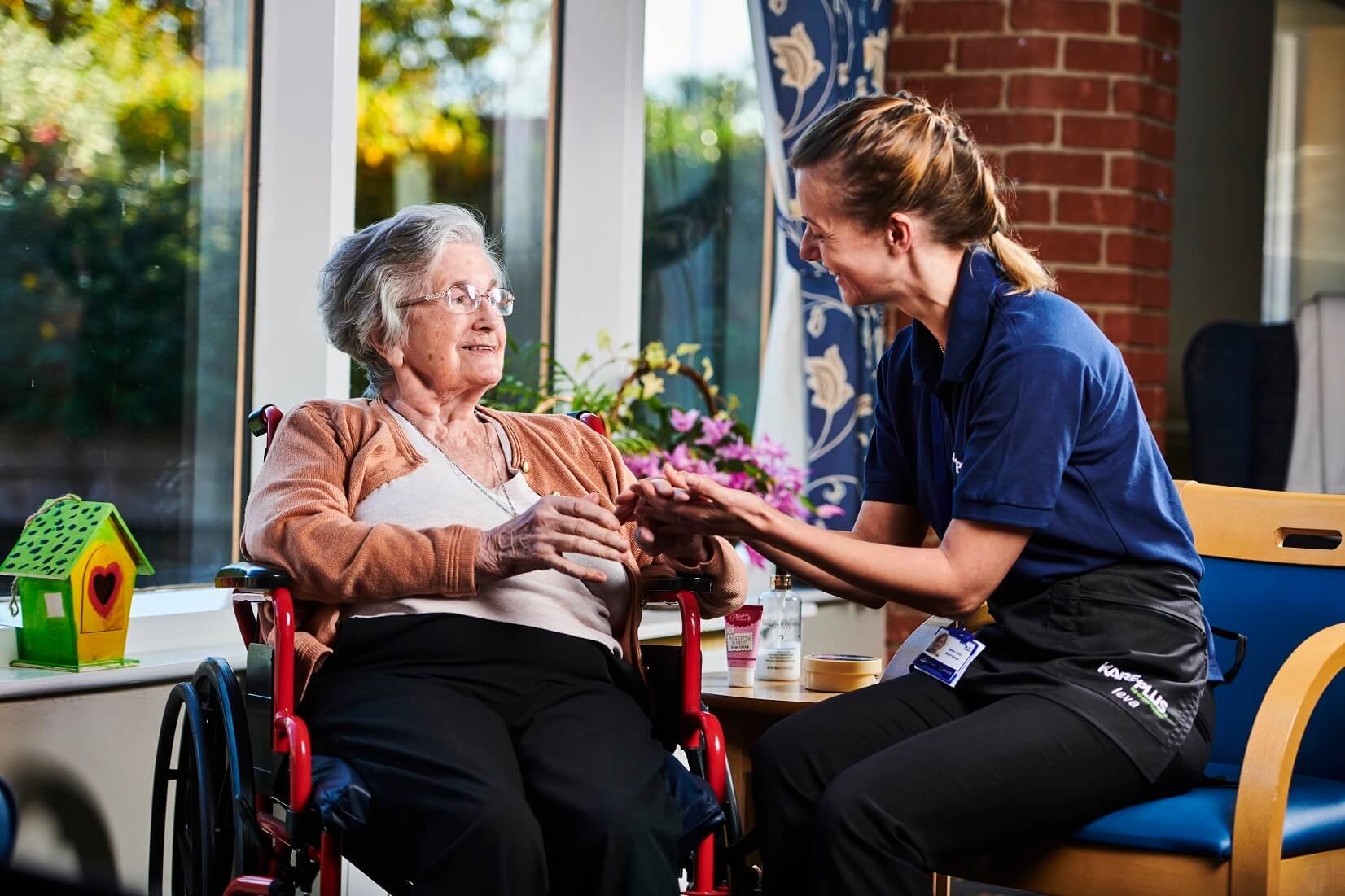
Compassionate dementia care and support
Dementia is a progressive condition that affects memory, thinking, and behaviour.
There are various types of dementia with Alzheimer's disease the most common followed by vascular dementia, Lewy body dementia, and frontotemporal dementia. All have different symptoms, affect different people, and require different support services.
While it is most associated with aging, it is not a normal part of getting old. Recognising the early signs of dementia can help individuals and families seek appropriate care and support sooner, improving quality of life.
Symptoms of dementia
Favouring specific places
Early signs of dementia include withdrawal from the world. Family members may notice a once bright, happy, and outwardly focused person starting to limit themselves to a few specific favourite places.
Struggling with conversation
Family and friends may experience frequently repeated questions and avoiding social interaction altogether is not uncommon.
Decline in personal care
As dementia advances individuals may struggle with basic personal hygiene and self-care such as bathing, dressing and brushing teeth, whilst vocalising that nothing is wrong.
Accusations of theft
Dementia affects memory, leading individuals to believe that misplaced items have been stolen, which may result in distressing accusations of theft.
Loss of hobbies
A once-active individual may give up reading, crossword puzzles, or other mentally engaging activities, often making excuses to cover it up.
Difficulty with words and items
Finding the right word can become more difficult. Individuals may misplace items around the home, only to later find them in bizarre locations, such as keys in the fridge.
Increased irritability and anxiety
Early onset dementia can make it difficult for individuals to manage their emotions and respond appropriately to some situations. Mood swings, irritability, and anxiety often accompany this.
Unusual financial transactions
Questionable financial decisions, such as handing over large amounts of money or their entire purse to a shop assistant, can be concerning.
Hoarding and excessive purchases
Buying multiple identical items on offer and stockpiling unnecessary goods can be a common behaviour.

Seeking help and support
If you are seeing any of the signs above then its a good idea to start the conversation as seeking support can make a significant difference in the individual’s and their caregiver’s quality of life.
-
Dementia can be tested for at a GP’s surgery with potential referrals for memory loss assessments at a Memory Clinic. Some medications may help slow progression.
-
Informal carers can request a Respite Break, which may include up to 100 hours of free care annually. Contact your local authority for more details.
-
Local authorities offer unpaid carers a carer’s assessment, which may provide benefits such as funding for an annual gym membership to support well-being.
-
Dementia UK and the Alzheimer’s Society are just a few organisations that can offer support and advice not only to a person living with dementia but to friends and family too seeking to navigate through the challenges that a diagnosis of dementia can bring.
How to approach support and care
Small steps are vital when introducing dementia support, as the individual may not believe anything is wrong. The stigma surrounding the word “care” can also present challenges. One approach is to introduce a “cook” or “cleaner” as support. Since everyone needs to eat and maintain a tidy home, these roles are less associated with aging and may be more readily accepted.
If you need further guidance, Kare Plus Preston is here to help with experienced, compassionate dementia home care solutions that can be adapted and tailored to your individual needs.
All our staff are trained to support with dementia after receiving classroom-based training. We work alongside Dementia Friends and can discuss the different home care options available to you.
Get in touch
From initial consultation to our first visit can take as little as 7 days. Call us on 01772 367656 or complete our online form to schedule an appointment. Let us support you in the life you want to lead.


